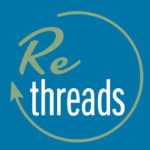Do you have a few hours to shop for your groceries this week?
That’s what it might feel like you are going to need if you are picking out two of our favorite vices: coffee and chocolate. Wow!! Have you seen the ever-growing aisle of chocolate bars in the stores lately: Newman’s Own, Endangered Species brand chocolate, Lindt, some organic, some fair trade, some none of the above. There is even a brand: “Climate Change Chocolate” (which I do not recommend FYI) The same goes for coffee.
Meanwhile coffee and chocolate market watchers report low wages, child labor, deforestation, and pesticide use. Not exactly what you had in mind to enjoy with you nice cup a joe or chocolate treat, right? Here’s my best effort at BWB discernment.
Chocolate:
Fact: all of our chocolate comes from abroad. I guess that why I bought “Climate Change Chocolate” curious about how I can buy chocolate with consideration of 1- its ecological impact (I LOVE the stuff) 2- its treatment of farmers. It turns out the only climate-friendly thing about this brand is that it offers green tips on the wrapper and offsets its carbon emissions.
Coffee:
Fact: Hawaii is the only state in the US that grows/farms coffee. So bottom line, you cannot get “local” coffee. You CAN get coffee that has been ROASTED here in Virginia, though. Shenandoah Joe’s has a roaster in Lexington and you can buy that, along with Righteous Bean, which is roasted in Ruckersville, VA at most stores. I like Righteous Bean because it’s fair trade and organic (but to be perfectly honest I don’t drink anything but decaf and not that often- if you know me, you know I’m naturally caffeinated). In talking with Joe at the Whole Foods coffee counter, we both agreed that it’s probably best to stay away from Sumatra or Indonesian varieties until they come on board with certification. At Whole Foods they sell Allegro brand coffees and the locally roasted brands in big bins – scoop it into a compostable bag and then grind it with their machine. Tres convenient.
SOLUTIONS:
Upon investigation Organic vs Fair Trade has its set of complexities. Reviews of organic farms have not always come up smelling of rosy labor practices and fair wages. Of course we don’t want child or slave labor in order to have our chocolate or our coffee.
So I would urge you to purchase both with the Fair Trade certification label.
Need further convincing: this from Grist.org: “It’s estimated that fair-trade chocolate represents less than 1 percent of the world’s roughly $60 billion chocolate market. But the more people like you who buy it, the better things will get for cocoa farmers, we hope. So keep on looking for Fair Trade Certified or Fair Trade Federation labels.”
Hope that helps!
BWB





Comments on this entry are closed.